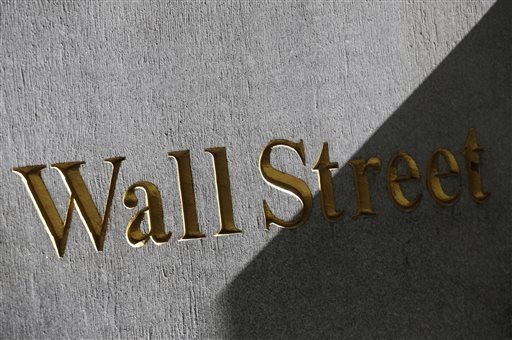NEW YORK -- Grim economic news from Europe and airstrikes in Syria rattled global stocks Tuesday.
Most of the damage was felt in European markets, which fell sharply after a closely watched gauge of business activity for the region fell to a nine-month low.
The disappointing news about Europe's economy also weighed down Wall Street. The Dow Jones industrial average opened lower and finished the day with its second triple-digit loss in a row.
The Dow slid 116.81 points, or 0.7 percent, to 17,055.87. The S&P 500 index lost 11.52 points, or 0.6 percent, to 1,982.77 and the Nasdaq composite fell 19 points, or 0.4 percent, to 4,508.69.
The Dow's triple-digit fall Tuesday follows a 107-point stumble from the day before. The blue-chip index hasn't posted two losses of 100 or more points since June.
Investors have been dealing with meager economic growth in Europe for months. The eurozone economy has been flat or barely growing since April, hobbled by the lingering effects of a debt crisis, uncertainty over a conflict in Ukraine and a lack of confidence among European consumers, businesses and banks.
"It has a very feeble recovery going on that is vulnerable to even the slightest external shock," said Jacob Kirkegaard, senior fellow at the Peterson Institute for International Economics.
European market indexes sank after the economic news. Germany's DAX fell 1.6 percent, France's CAC 40 fell 1.9 percent and the U.K.'s FTSE 100 lost 1 percent.
The outlook in the U.S. is far more positive than Europe. The economy has been gaining strength after getting off to a slow start this year. Growth reached a 4.2 percent annual pace from April through June. Unemployment has dropped to 6.1 percent in August from 7.2 percent a year earlier. Employers have been adding 215,000 jobs a month this year, up from 194,000 a month in 2013. Consumers are more confident and willing to take on debt.
But individual countries' economies cannot stand on their own in today's global economy. If Europe and Asian economies were to lose more traction, it could spill over into the U.S., traders say. Companies in the Standard & Poor's 500 index, for example, generate nearly half their sales abroad.
"When it comes right down to it, U.S. companies do business globally," said Quincy Krosby, a market strategist with Prudential Financial. "Unless global demand can keep up, it's going to start hurting these companies."
Along with the bad economic news, investors had geopolitical concerns to worry about Tuesday.
The U.S. and five Arab nations attacked the Islamic State group's headquarters in eastern Syria in nighttime raids Tuesday. U.S. aircraft as well as Tomahawk cruise missiles launched from Navy ships in the Red Sea and the northern Persian Gulf were used.
Investors moved money into U.S. Treasury bonds and gold, which are considered safer during times of trouble. The yield on the 10-year U.S. Treasury note fell to 2.53 percent from 2.57 percent. The price of gold rose $4.10, or 0.3 percent, to $1,222 an ounce.
"Bonds and gold are responding to those geopolitical concerns," Krosby said.
In other metals trading, silver edged up half a penny to $17.78 an ounce. Copper fell less than a penny to $3.04 a pound.
In oil markets, U.S. crude oil rose 69 cents to close at $91.56 a barrel in New York. Brent crude, a benchmark for international oils used by many U.S. refineries, fell 12 cents to close at $96.85 on the ICE Futures exchange in London, reaching its lowest level since June of 2012.
Business on 09/24/2014
